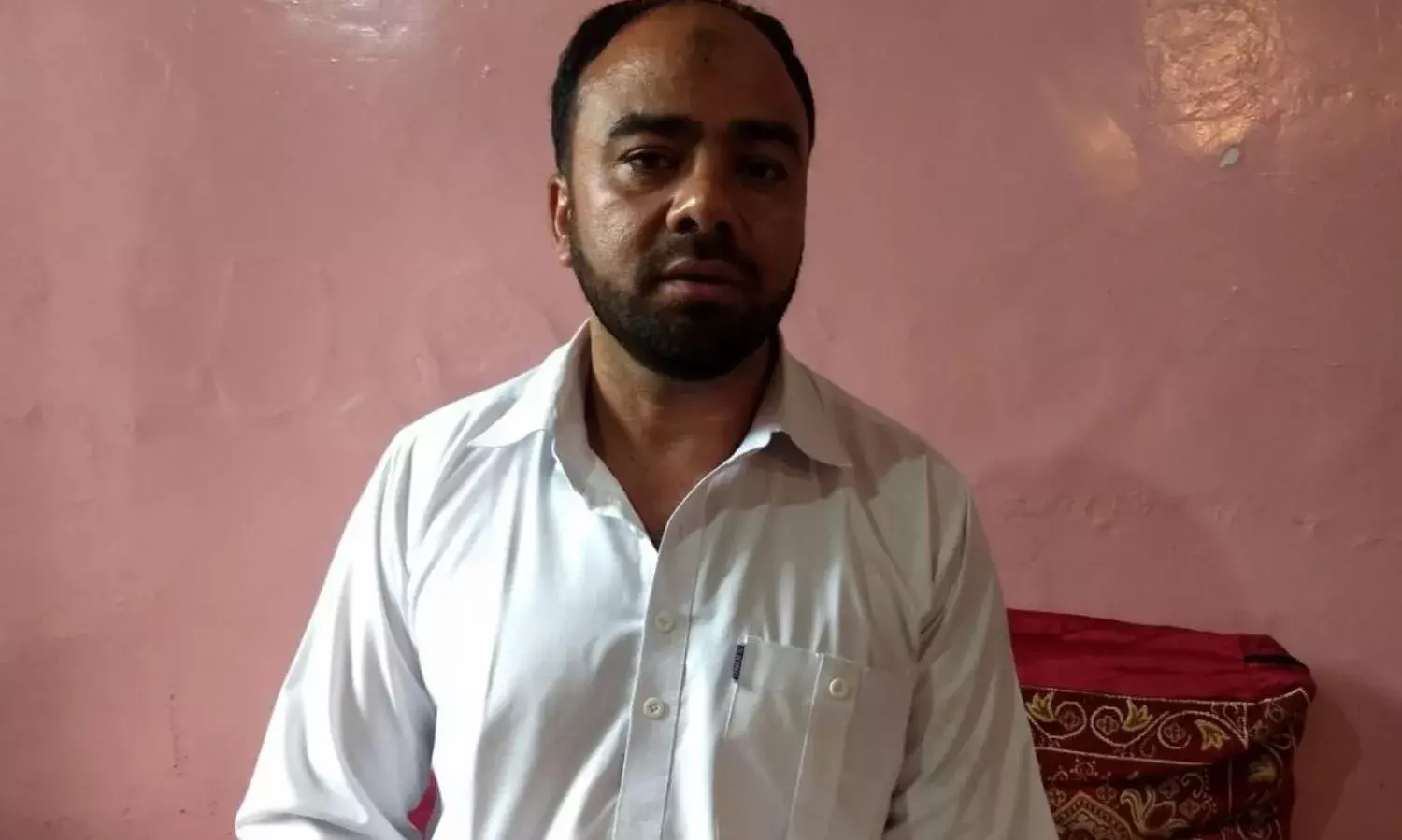Home, After 24 Years in Jail: 'My Memory Fails Me, I Lost Everything'
'Whenever there was a blast in the country, we were questioned and tortured'

SRINAGAR: In a low ceilinged room inside his home in downtown Srinagar, Mirza Nisar Hussain, 40, struggles to recognise the man who just hugged him. As the two men embrace, Nisar’s weak eyes turn for answer towards his elder brother.
“He is our uncle, our mother’s maternal cousin,” Nisar is told by Zaffar Hussain, his brother who works as a private teacher.
Yet Nisar seems clueless. His empty, moist eyes gaze at the man with the curiosity of a newborn. Having spent the past 24 years in jail, he is visibly struggling to reconnect with his roots.
“What can I do? Memory fails me. I spent 24 years of my youth in jail. I lost everything,” he says.
Mirza Nisar is one of four men from Jammu and Kashmir acquitted Monday by the Rajasthan High Court after the prosecution’s failure to prove charges of their involvement in the 1996 Samleti bomb blast.
Nisar was 16 when sleuths from the Delhi Police’s Special Cell arrested him and another brother of his, Mirza Iftikhar, from Nepal’s capital Kathmandu for their role in the bombing of Delhi’s Lajpat Nagar market, also in 1996, which killed 13 civilians and injured 39.
The two brothers had a flourishing shawl business started by their father, now deceased. “Once in jail, whenever there was a blast in the country, we were questioned and tortured because we were Kashmiris and Muslims. We kept telling them we are innocent but they didn’t listen to us,” says Nisar.
The two brothers’ sudden arrest led to the closing of their business as their eldest brother, Zaffar, had to follow the case in court. “I was studying for medical entrance which I had to give up. I started a small coaching centre and also got three sisters married in the meantime. No one should go through what we have endured in all these years,” Zaffar tells The Citizen.
While Iftikhar was acquitted in 2010 of his involvement in the Lajpat Nagar bombing, Nisar was booked in the Samleti blast case, casting a shadow on prospects of his early release.
“In all these years, I read religious books which gave me comfort and solace in the darkness of the barracks in jail,” he says.
On Monday, a convict held at Jaipur Central Jail had gone to court for an appearance. “When he returned, he broke the news of our acquittal. I couldn’t believe it at first. When I told others they cried in joy,” says Nisar.
At their home in Srinagar’s Fateh Kadal locality, a Kashmiri chef (waza) has taken over the kitchen to deal with the deluge of visitors coming in to congratulate the family for the “miracle”.
The rush of visitors keeps Nisar on his toes. Men and women are sitting in separate rooms but everyone wants to witness the miracle. As his close relatives shake his hand and hug him, Nisar initially looks at them with empty eyes.
“He is Papa,” Zaffar says of the man, their mother’s cousin, who has just hugged Nisar. A spark lights up in Nisar’s eyes as he again stands up to hug ‘Papa’.
“We had given up hope. When I shared the news of Nisar’s acquittal with my mother and sisters, they were shocked. God is great. This is nothing less than a miracle,” Zaffar says.
Along with Nisar, Mohammad Ali Bhat and Lateef Ahmed, both residents of Srinagar, were released from jail on Tuesday after the court acquitted them of all charges in the Samleti blast case.
“Now the fight for justice begins. We will sit down, all of us who were released, and chalk out a legal strategy to seek compensation for what we have lost. The government can’t return the 24 years I spent in jail. At least they can provide us compensation so we can start our lives afresh,” says Nisar.



